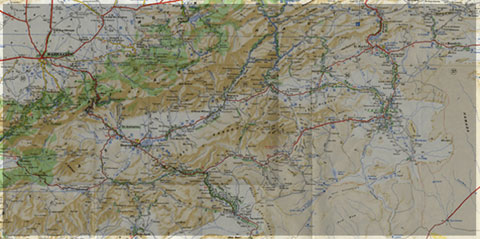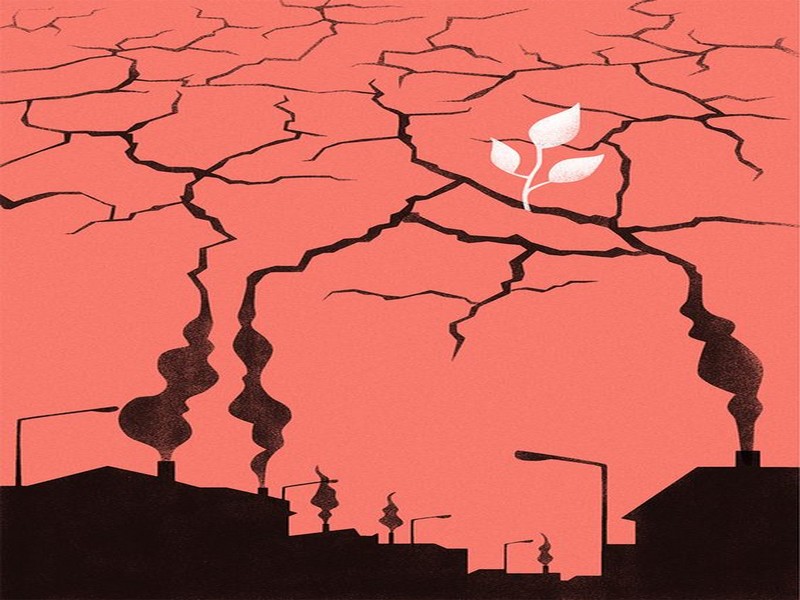Recherchez sur le site !
Recherche avancée / SpécifiqueCatégories publications
+ Sciences De La Terre - Archéologie - Astronomie - Spéléologie - Ecologie - Pédologie - Volcanologie - L'hydrogéologie - Géomorphologie - Minéralogie - Pétrologie - Paléontologie - Géologie + Climatologie - Réchouffement climatique - Changement climatique + Plantes - Plantes Aromatiques - Plantes médicinales + Zoologie - Faunes + Botanique - Flors + Sciences humaines - Géo Eco Tourisme - L’anthropologie - L'Histoire - Démographie - Sociologie - Géographie - Patrimoine culturel
Géo éco tourisme inclusif

Géoparc et Recherche Scientifique
Le coins de l’étudiant



Blog Géoparc Jbel Bani
International Encyclopedia of Environmental Politics (2000) Routledge Recycling (Géoparc Jbel Bani)
By Dr. Sandrine Simon
Open University, Technology Faculty, Systems. Open Systems Research Group, Walton Hall, Milton Keynes, MK7 6AA.
The environmental problems generated by our consumer societies require immediate measures that respect the principles of long term sustainability. However, in response to the rising amount of wastes (on average, per capita arising municipal wastes increased by 26 between 1970 and the late 1980s in the OECD) various (mostly end-of-pipe) waste management strategies have been advocated, while a real questioning of what constitutes 'wastes' is still desperately needed.
In Europe, a Strategy for Waste Management (SEC (89) 934), adopted in May 1990, established a hierarchy of preferred methods of disposal. Thus, 1st) the reduction of wastes can be achieved by using technology that requires less material and produces less waste, and by producing longer lasting products with lower pollution potential 2nd) reuse can be promoted returnable bottles, reusable packaging 3rd ) recovery consists in finding beneficial uses for wastes and includes material recycling, composting and energy recovery (producing energy either by burning wastes or by using landfill gas) 4th ) the disposal of wastes, finally, can be done by incineration or landfill.
Waste minimization is the preferred solution. However, while well adapted to packaging (if its design uses the minimum of resources to fulfil its function, so that, when discarded, a minimum of wastes is generated), it does not sit easily with the existing social habits of western societies.
In parallel, industrialized countries have been encouraged, if not legally obliged (European Framework Waste Directive Dir. 75/442 as amended in 1991) to recycle and reuse wastes as raw materials.
Recycling, although only in third position in the hierarchy, has widespread support. The giant German recycling industry and its advanced technology is promoted as an example of environmentally practices and 'western' environmental groups promote it and are supported by grants provided by the Governments who enjoy the reward of being seen as green. In most OECD countries, although recycling rates for (increasing) households' wastes need to be improved, those for industrial processes are generally high. Recycling processes (collect of wastes, processing and reprocessing of recyclable materials) are highly regulated and the legal texts also provide information concerning the targets to be reached. Thus, EC packaging directive's recovery target is 50-65 for packaging, with a recycling target of 25-45, and a minimum of 15 for each material by 2010.
In our economies, recycling is viewed as important for three reasons:
- It allows us to reduce our need for virgin materials;
- Significant energy savings can be achieved by reprocessing waste materials, compared with the production of the equivalent virgin material;
- Recycling reduces the environmental damage that waste disposal on landfill creates. But the practical realities of recycling are not clear cut.
Aluminum drink cans, for instance, seem worthwhile items since their recycling is financially viable and only takes 5 of the energy compared to making the aluminum from bauxite ore (excluding transport considerations). On the contrary, the recycling of steel, paper, plastic, and glass are much less straightforward and more costly. Moreover, questions are raised about the existence of markets for recycled goods. Thus, once all the factors are taken into account, recycling can actually take more energy than the use of virgin or renewed resources.
In developing countries, whose wastes generally consist of vegetable matter which can be composted, the issue of recycling is different altogether. Recycling is automatically implemented, in particular in big cities, where whole communities of people (have to) support themselves as dump scavengers and recyders. Therefore, although energy recovery and composting are two important forms of 'recycling', only in a few developing countries can we see official figures on the rates of recycling of wastes such as paper (e.g. 25 in Morocco, 37 in Columbia). The issue of wastes has grown as a striking illustration of the North-South economic and environmental differences. The disposal crisis has, in effect, created an active international trade in wastes, where the North is looking for countries poor enough to want to accept trash for dumping fees. Although many poor countries are increasingly reluctant to landfill imported wastes, this being partly due to the trade of hazardous wastes which had to be regulated (in 1993, South Africa was the only country in Africa which did not ban imports of hazardous wastes) there is a now growing interest in shipping wastes to the Third World for recycling.
New insights in waste disposal can provide solutions that are better adapted to our long-term needs. Energy recovery, as well as a new conception of wastes that questions the production and consumption processes in life cycle analysis terms and in view of using wastes as inputs, could solve problems related to material recycling and markets all at once. Such illustrations can be found in the 'industrial symbiosis' system in Kalundborg, Denmark, or in sustainable agricultural processes in industrialized and developing countries.
Source Web: DR. Sandrine Simon Oro.Open.Ac
Dictionnaire scientifique
Plus de 123.000 mots scientifiques
Les publications
Géo parc Jbel Bani

Circuits & excursions touristiques

cartothéques


Photothéques
Publications & éditions





